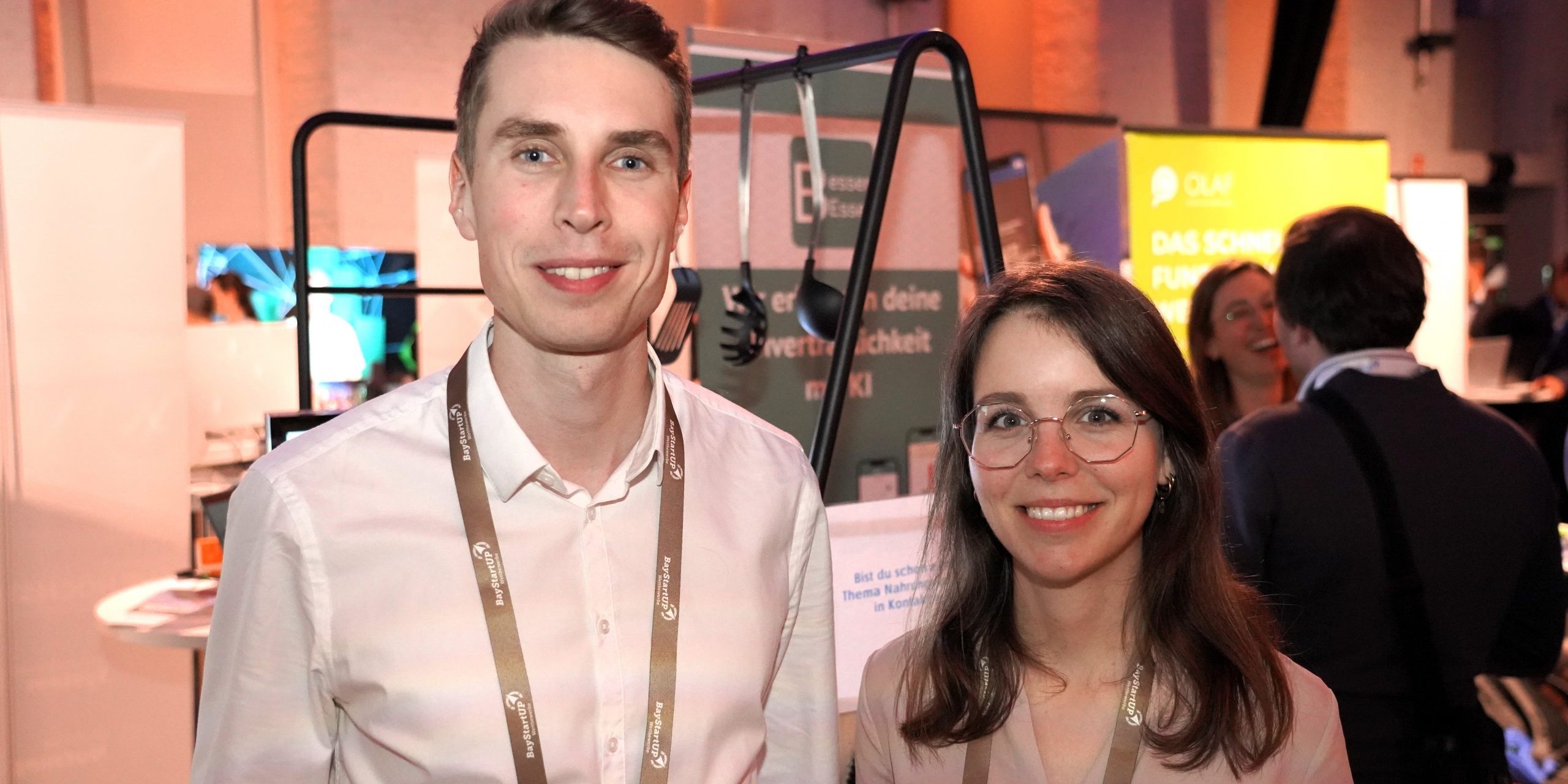As the first winner of the EELISA InnoCORE Prototype Contest, Adán Sánchez’s success paved the way for collaboration with JOSEPH’s test space, this year’s winners, Pauline Nöldemann and Yannick Wiesner presented their project for prototyping: the BesserEsser App, an innovative solution to track food allergies.
Q. Your start-up is called BesserEsser – what’s behind it? 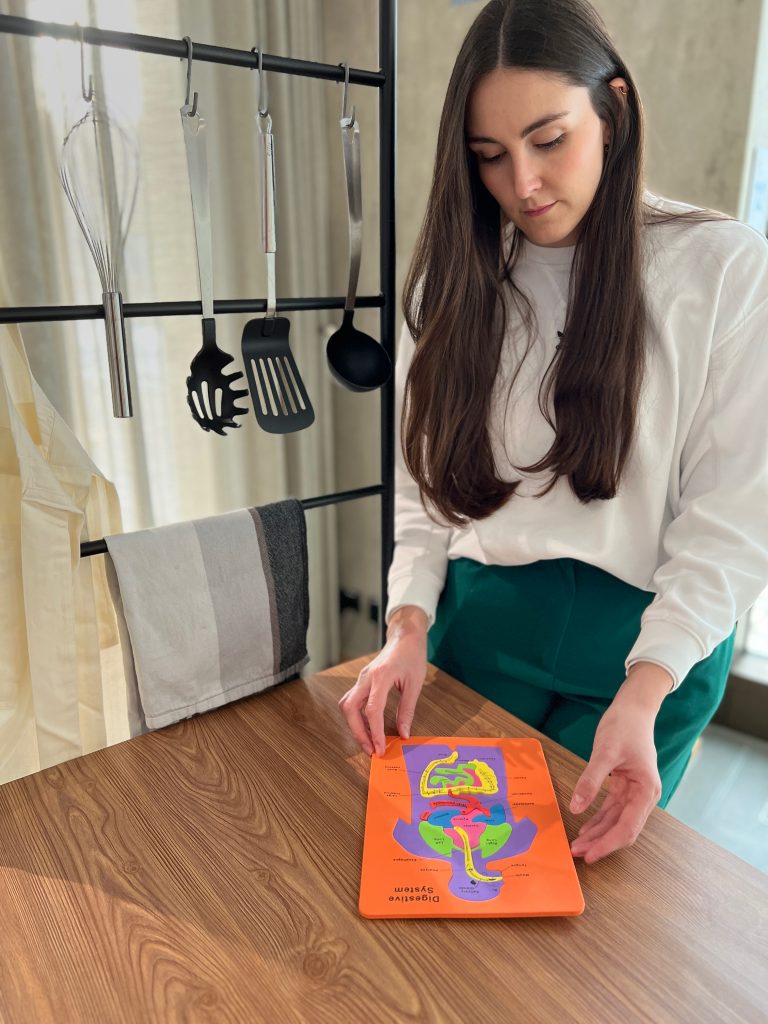
A. Yannick: The BesserEsser app is a digital food and symptom diary that helps to identify and treat food intolerances. Our users document their meals and symptoms and, on this basis, we can create an initial analysis of individual intolerances after just two weeks. We then start the change in diet and support the user with information, tips for everyday life and nutrition plans with suitable recipes.
Q. How did you come up with the idea for your start-up?
A. Pauline: We came up with the idea about 3 years ago. I have various food intolerances myself and it took me a long time to find out what I can and can’t tolerate. During the coronavirus lockdown, Yannick and I were both working in an IT consultancy and were looking for a new project to develop our skills in app development. That’s when we came up with the idea of a digital food diary. We gradually added more functions and then finally worked on the algorithm to find out the individual triggers of the complaints.
Q. What added value does the BesserEsser app provide for our society?
A. Yannick: In Germany, around 20 million people suffer from food intolerances and around half of those affected don’t know which foods trigger their symptoms. With our app, we provide quick and, above all, low-threshold help for those affected. Unfortunately, the conventional route via a specialist is very long and time-consuming and does not always lead to the desired result. With our individual support, we can help those affected to experience fewer symptoms in the long term.
Q. Why did you apply for the EELISA Prototype Contest and what did you hope to gain from it?
A. Pauline: We already knew about JOSEPHS from various lectures at FAU. When we saw the contest with the Testspace as the main prize, we were immediately hooked. We had already tested the medical effectiveness of our app in a pilot study and had already been able to carry out some quantitative analyses with our prototype. However, we were still missing the important qualitative feedback from our customers. The better we understand our customers, the better we can develop our product!
For example, we were hoping to find out whether digital health applications are accepted in Germany and what customers think of our AI algorithm – is it perceived as an innovative, helpful tool or do patients fear data leaks and miss human interaction? And are customers willing to pay for this service?
Q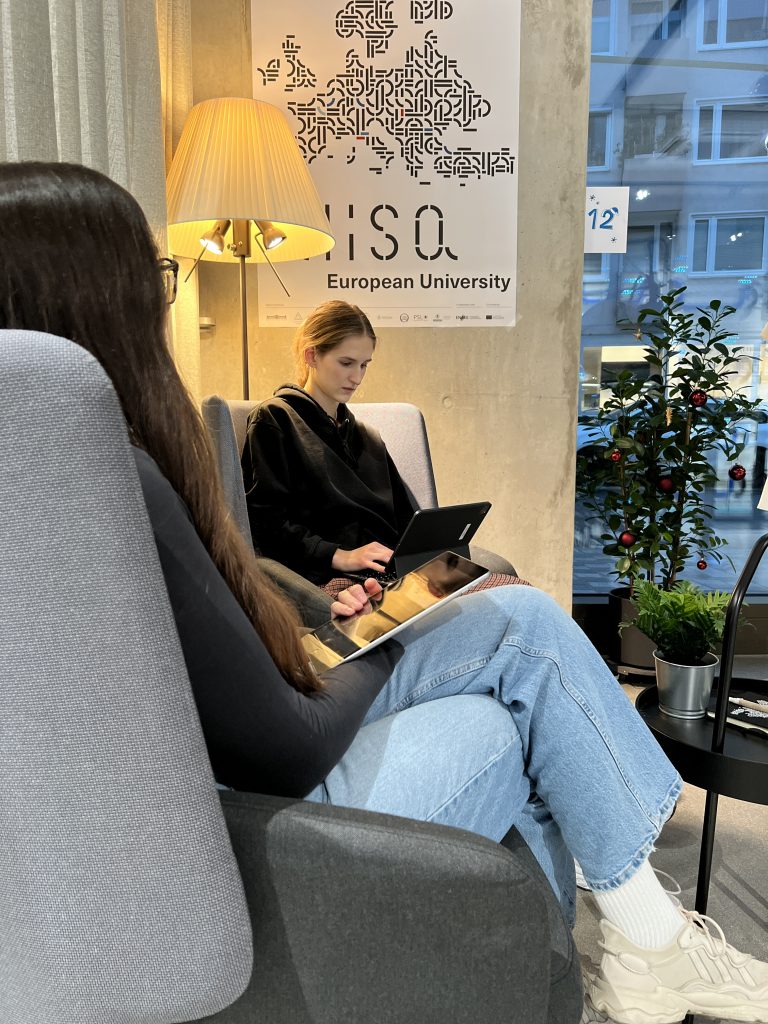 . What results did you get from the Testspace? What were you particularly surprised by?
. What results did you get from the Testspace? What were you particularly surprised by?
A. Yannick: The feedback confirmed that there is a great demand for our product and that it is needed on the market. Some of the findings also flowed directly into our pitch deck, for example that two-thirds of all “diagnoses” in the area of food intolerances are self-diagnoses – which is really frightening, as this can quickly lead to dangerous malnutrition. We also found that around 80 percent of the younger target group would use the app or recommend it to someone affected, which we were very pleased about.
A. Pauline: What was surprising for us was that our use of artificial intelligence was very positively received. Many more people appreciate the innovation and efficiency than have concerns or fears. We were expecting more restraint here, but the result really supports our idea and helps us with product communication.
The findings on willingness to pay were also helpful. Many patients see their health insurance company as responsible for covering the costs of their healthcare services. This reinforces our existing hypothesis and confirms our efforts to cooperate with health insurance companies in order to offer the BesserEsser app free of charge to our patients.
Q. What’s next and what are your next steps?
A. Yannick: We now have a long list of other features that we will incorporate, such as improving autocomplete to enter meals more quickly. Other points from the feedback still need to be evaluated further. Specifically, we are working towards certification as a medical product and then we would like to enter the market as soon as possible to help many more people!
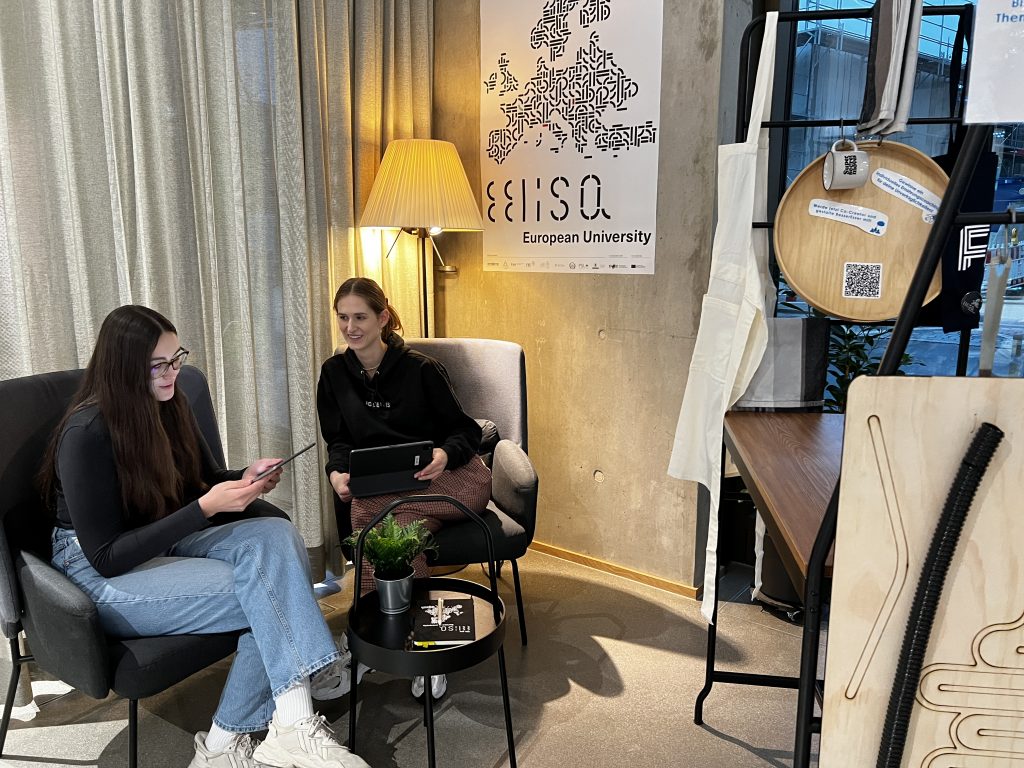
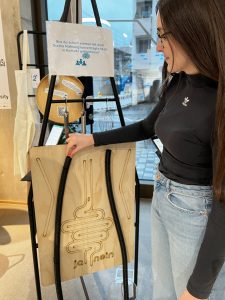
Dear Pauline, dear Yannick, how did the test space at JOSEPHS work for your app?
Pauline: After a short kick-off, there was a big workshop at JOSEPHS where we worked out our goals for the test space as a team together with the Innovation Guides and David Schkade. We also discussed how we could present our idea visually and create an exciting user experience at JOSEPHs. Based on our goals, expectations and specific questions, the JOSEPHs team developed a questionnaire that visitors to our stand had to complete.
After around 70 visitors had been surveyed, the JOSEPHs team presented us with the first interim results and we were able to fine-tune a few more questions.
And then there was a big final presentation, where all the findings were presented to us with suggestions and measures.
![]() This is an EELISA Connect Workshop funded under EELISA InnoCORE. EELISA InnoCORE has received funding from the European Union’s Horizon 2020 research and innovation programme under grant agreement No 101035811
This is an EELISA Connect Workshop funded under EELISA InnoCORE. EELISA InnoCORE has received funding from the European Union’s Horizon 2020 research and innovation programme under grant agreement No 101035811

